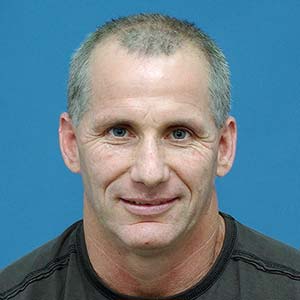Session Abstract – PMWC 2017 Silicon Valley
Session Synopsis: Predicting clinical response to cancer therapies remains a major challenge in cancer treatment. Recent reports indicate that the tumor microenvironment and heterogeneity can limit the predictive power of current biomarker guided strategies. The panel will discuss new technologies that preserve these critical elements for better predictive value.
Session Chair Profile
Chief Commercial Officer, Mitra Biotech
Biography
Parker leads worldwide commercial operations for Mitra Biotech, a pioneer in novel technologies to better predict personalized therapy response in oncology. Mitra’s proprietary CANScriptTM assay tests how a patient’s tumor responds to numerous therapy combinations while retaining the critical components of the tumor microenvironment, including the immune compartment and heterogeneity. Mitra has demonstrated an extremely high correlation between its in-vitro predictions and what happens in-vivo in the clinic across different tumor types and drug classes. Importantly, the company has also demonstrated that immune checkpoint inhibitors can be successfully tested on the platform. Parker works with clinicians to demonstrate CANScriptTM clinical utility, and with biopharma clients to use the system as models for patient response – speeding development of new drugs. For over 15 years, Parker has been developing and launching novel diagnostic and drug discovery products and services with companies including BD and Upstate Biotechnology (now EMD Millipore).
Speaker Profile
M.D., Ph.D., Head of Institute of Medical Oncology, Sheba Medical Center
Biography
Dr. Raanan Berger is director of the Institute of Oncology at the Sheba Medical Center, which is Israel’s national hospital and the largest medical center in the Middle East. His MD and PhD are from Sackler Medical School at the Tel Aviv University, conducting PhD studies with Dr. Gideon Rechavi at the Sheba Medical Center. Dr Berger completed clinical training in Medical Oncology and Radiotherapy at Sheba and Postdoctoral fellowship at Dana Farber Cancer Institute at Harvard Medical School. During this time, he combined clinical work treating prostate cancer patients (with Dr. Philip Kantoff) with basic research in Dr. William C. Hahn’s lab. Dr. Berger developed a novel prostate cancer model derived from primary human prostate epithelial cells with defined genetic elements. In 2006, he established the Riva Koschitzky Oncology Clinical Research Center, at Sheba, which is the largest center for all-phase oncology clinical trials in Israel, currently conducting over 200 advanced clinical trials backed by the biggest pharmaceutical conglomerates and top scientists in the world. Dr Berger led his institute to become one of the most active partners in the world wide initiative networking (WIN) Consortium and he is the PI of the WINTHER-1 trial for personalized cancer medicine.
Speaker Profile
M.D., Ph.D., Investigator, Center for Cancer Research, NCI, NIH
Biography
Dr. Udayan Guha is an Investigator in the Thoracic and Gastrointestinal Oncology Branch and head of the Cancer Signaling Networks Section at the National Cancer Institute, NIH. Dr. Guha’s scientific focus is to understand the intricate signaling networks that drive tumorigenesis and resistance to targeted treatment. He employs quantitative mass spectrometry-based proteomics to identify mutant epidermal growth factor receptor (EGFR) targets in lung cancer. He uses proteomics along with genomics technologies to interrogate the mechanisms of resistance to EGFR tyrosine kinase inhibitors (TKIs). Recently, Dr. Guha’s group has studied tumor heterogeneity and how it influences targeted treatment response using state-of-the-art proteo-genomics methodologies. He is the principal investigator of a treatment protocol to evaluate the role of local ablative therapy (LAT) and osimertinib/tagrisso treatment in patients with EGFR mutated lung adenocarcinoma. He has also established a rapid/warm autopsy protocol for Thoracic malignancies at the NIH Clinical Center.
Speaker Profile
M.D., Ph.D., Director of the Rapid Medical Donation Program, Memorial Sloan Kettering Cancer Center
Biography
Dr. Donahue is a gastrointestinal pathologist interested in cancer genetics with a strong focus on pancreatic cancer. She is also a member of the David M. Rubenstein Center for Pancreatic Cancer Research. Her research interests include understanding the role of somatic mutations in DNA, the “genetic blueprint” of all living cells, in tumorigenesis, metastasis and treatment resistance. She is also the Director of the Rapid Medical Donation Program that empowers patients at their end of life to contribute to ongoing state of the art clinical research at Memorial Sloan Kettering Cancer Center.







